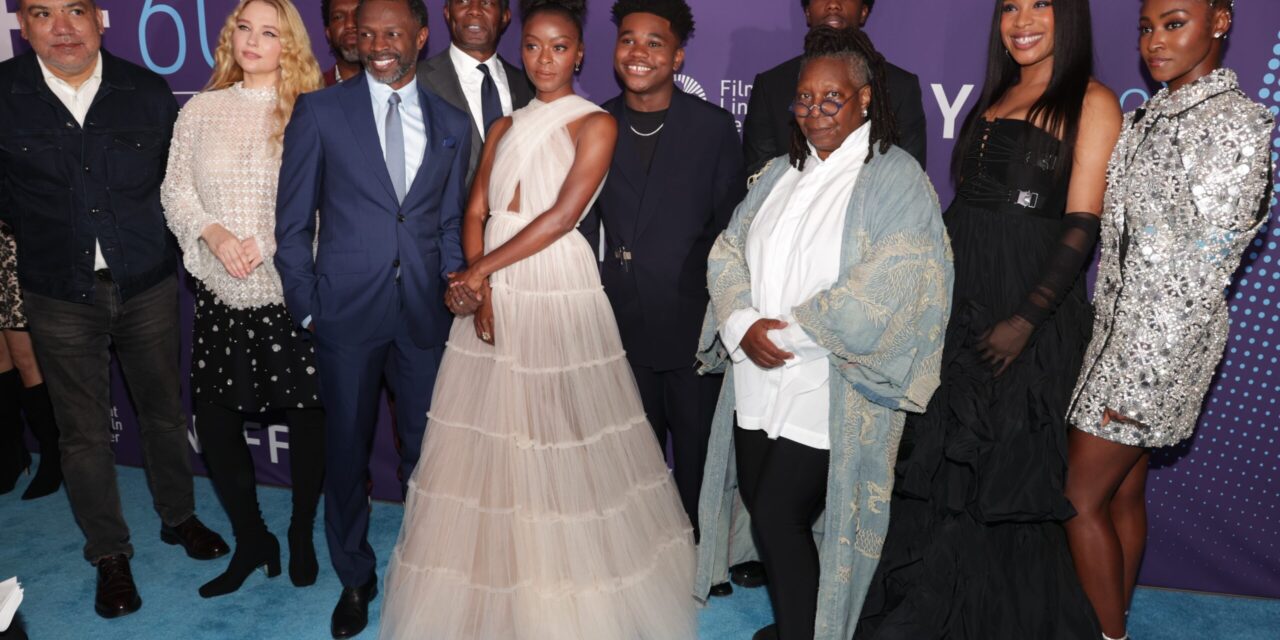
By Danny R. Johnson – Entertainment News Editor
“Till” makes its thematic debut on October 14. And is directed by Chinonye Chukwu with a screenplay by Michael Reilly, Keith Beauchamp, and Chukwu and tells the heartbreaking true story of the historical lynching of 14-year-old Emmett Till — for allegedly whistling at a white woman in Money, Mississippi, in 1955 — through the eyes of his mother, Mamie Till-Mobley. This is what makes the film so compelling. It is told from the perspective and experience of a Black woman and is co-written and directed by a Black woman.
“Till” is one of the most compassionate and truthful movies, and there is no level where it ultimately fails. It is one of those rare films that can communicate fully to a wide range of audiences yet contains depths and subtleties to engross any adult. The story is simple because it involves what people do and how they change and grow. Not a lot happens on the action level. Still, there’s tremendous psychological movement in “Till,” and hardly ever do movies create characters who are so complete and accurate and relationships that are so loving.
The actors in “Till” bring this socially conscious film to life with passion and deep emotion. Danielle Deadwyler’s portrayal of Till-Mobley is defiant and charismatic. Whoopi Goldberg, who plays Till-Mobley’s mother Alma Carthan (and serves as the film’s producer), is complicated and vulnerable as the family’s matriarch negotiating traditional Southern racist practices and modern Northern quests for Black liberation and feminism. Jalyn Hall as Emmett Till is upbeat with childlike innocence. While brief, Roger Guenveur Smith’s role as Dr. T.M.R. Howard is memorable and commanding. Haley Bennett (Carolyn Bryant), Jayme Lawson (Myrlie Evers), and Tosin Cole (Medgar Evers) all transport you back to the racially charged history of 1955. “Till” is a modern-day masterpiece shining a light on an important American story that has been hidden from the public and education system.
Deadwyler’s portrayal of Till-Mobley is a wonder to see the subtleties in her performance. We have seen her with her family and know her strength and intelligence. Then we see her dealing with the white power structure, and her behavior toward it is in style born of cynicism and necessity. She refuses to say or do what they want and sets out to pursue justice for her Emmett.
The story is about love, loss, anger, hope, and a mother’s special bond with her child. That is all, and it is enough; few movies deal with even one of those subjects with any honesty or power. Justice and hope are probably the emotions evoked most by “Till” –the hope of the mother that the Jim Crow era justice system will give her some sense of justice for her son; the hope of the mother, who is representative of the millions of Black mothers who came before her and who continue to exist, fighting for justice for their loved ones who were murdered.
The movie will undoubtedly be attacked by those who will say: “Why to bring up the past and cast a light on such a dark period in America’s past?” It is merely “liberal and part of the woke culture,” some of its critics will say. I do not think so. I believe “Till” must be taken as a story about one Black family and its struggle, a common plight for millions of Blacks in the South during the 1950s, 1960s, and 1970s. It is, I suppose, a “liberal” film, and that has come to be a bad word in these times when liberalism is supposed to stand for compromise–for good intentions but no action. This movie stands for a lot more than that, and we live in such illiberal times that “Till” comes as a reminder of former dreams that were lost, like in Lorraine Hansberry’s “Raisin in The Sun.” It is not surprising that the brutal death of Emmett Till represents all children who lost their lives to senseless gang violence.

And so, the filmmakers set out to tell the tale of a bond between a mother and son and the extraordinary journey a mother takes to seek justice for her son’s lynching by white supremacists in 1950s Mississippi and to make sure he was not forgotten. Horrified by the mutilation of her son’s body, Mamie decided to have over 50,000 people view Emmett’s corpse in Chicago, which caused many people to faint at the sight and smell of the body or leave in tears. Martin Luther King Jr. put it this way in a stirring speech in Montgomery, Alabama few months after Emmett’s funeral. He called what happened “one of the most brutal and inhuman crimes of the twentieth century.” Soon after King’s speech, the Montgomery Improvement Association, of which King was president, staged the 13-month Montgomery Bus Boycott. Rosa Parks’ arrest catalyzed the boycott for refusing to give her bus seat to a white woman. But Till-Mobley’s decision that her son’s desecrated body to be publicly seen was indelibly woven in the minds and hearts of Black people across the country, galvanizing many to say enough is enough. “When people saw what happened to my son,” she said, “men stood up who had never stood up before. People became vocal who had never vocalized before.”
The director and writer for “Till,” Chinonye Chukwu, summed up the movie’s objective as best as anyone could: “I hope viewers will empathize with the humanities on screen and see our present cultural and political realities within this film. And I hope that Mamie’s story helps us all to realize the power within ourselves to continue to fight for the change we want to see in the world, just as she did.”
“Till” MPA Rating is PG-13 for thematic content involving racism, disturbing solid images, and racial slurs. The film’s running time is 130 minutes. Release date in theaters in New York, Los Angeles, Chicago, Washington, D.C., and Atlanta on October 14. Additional select theaters began on October 2. The film opens in theaters everywhere on October 28.




